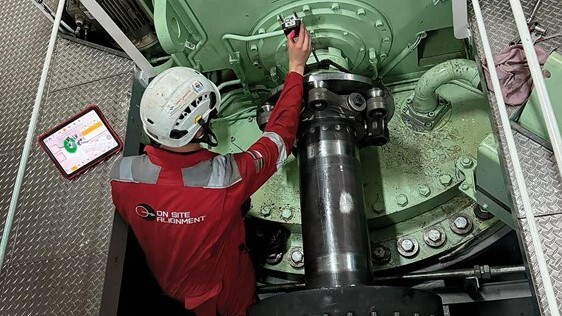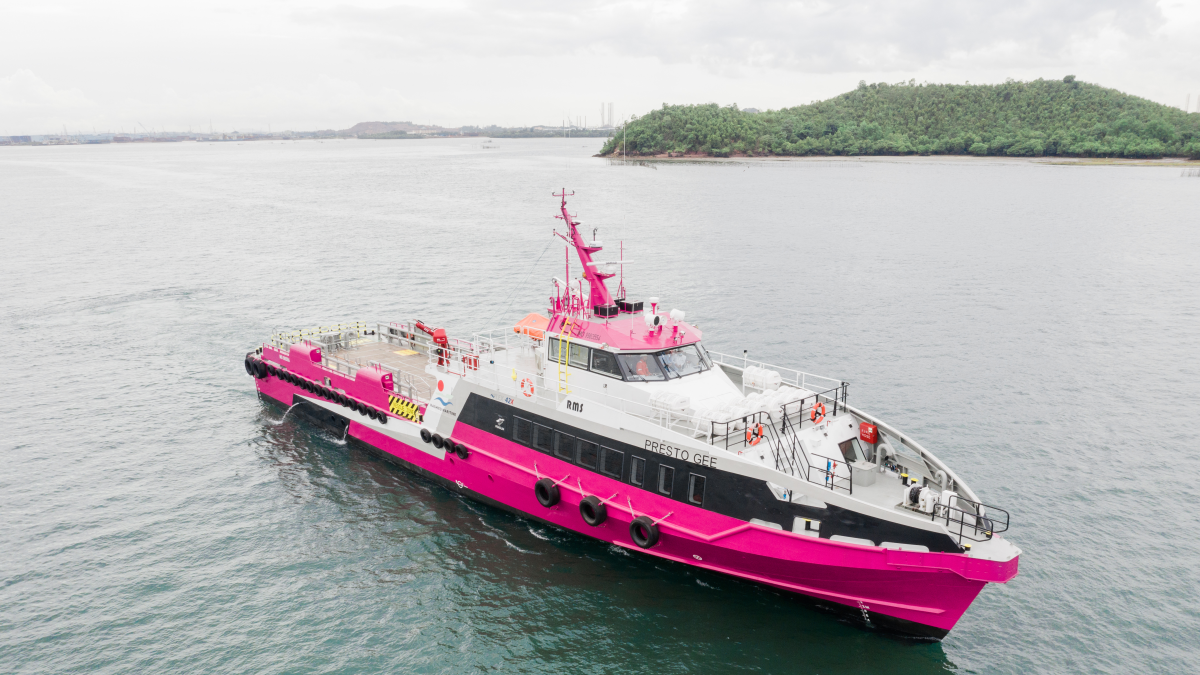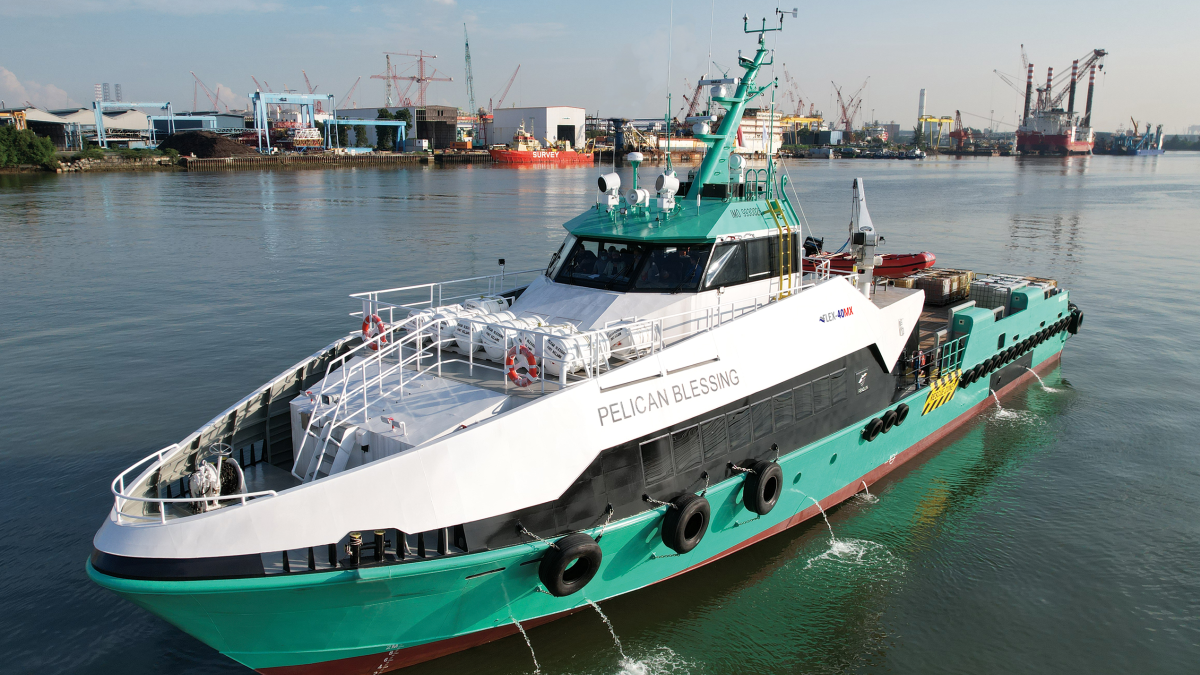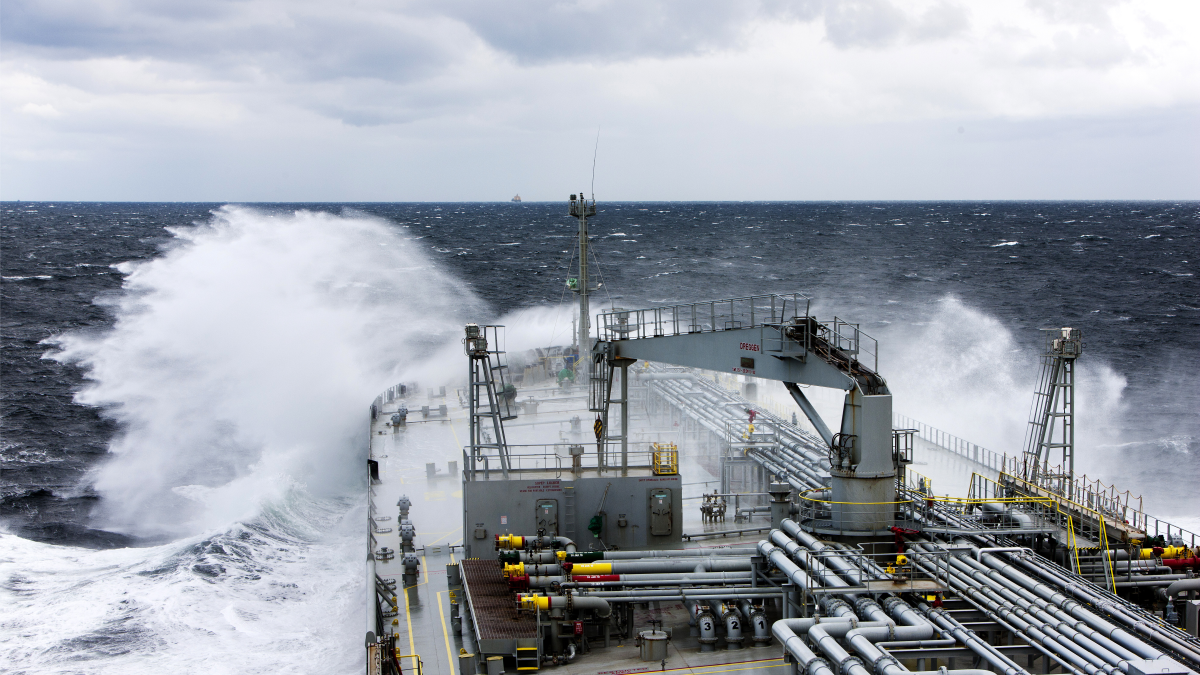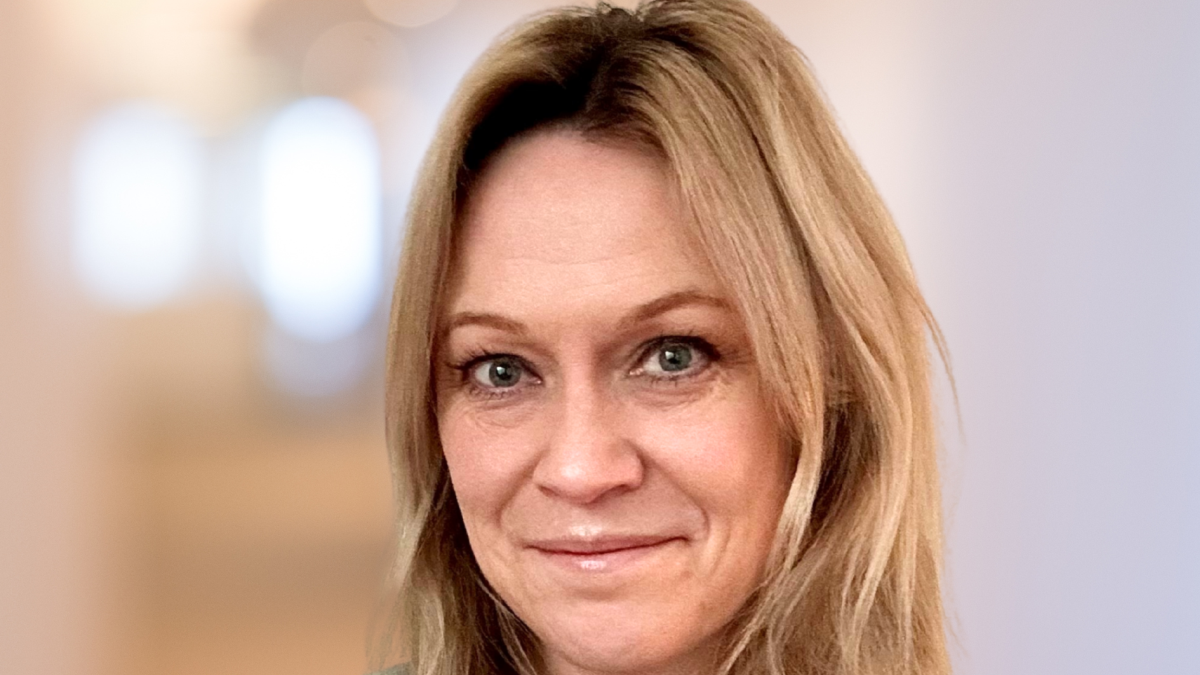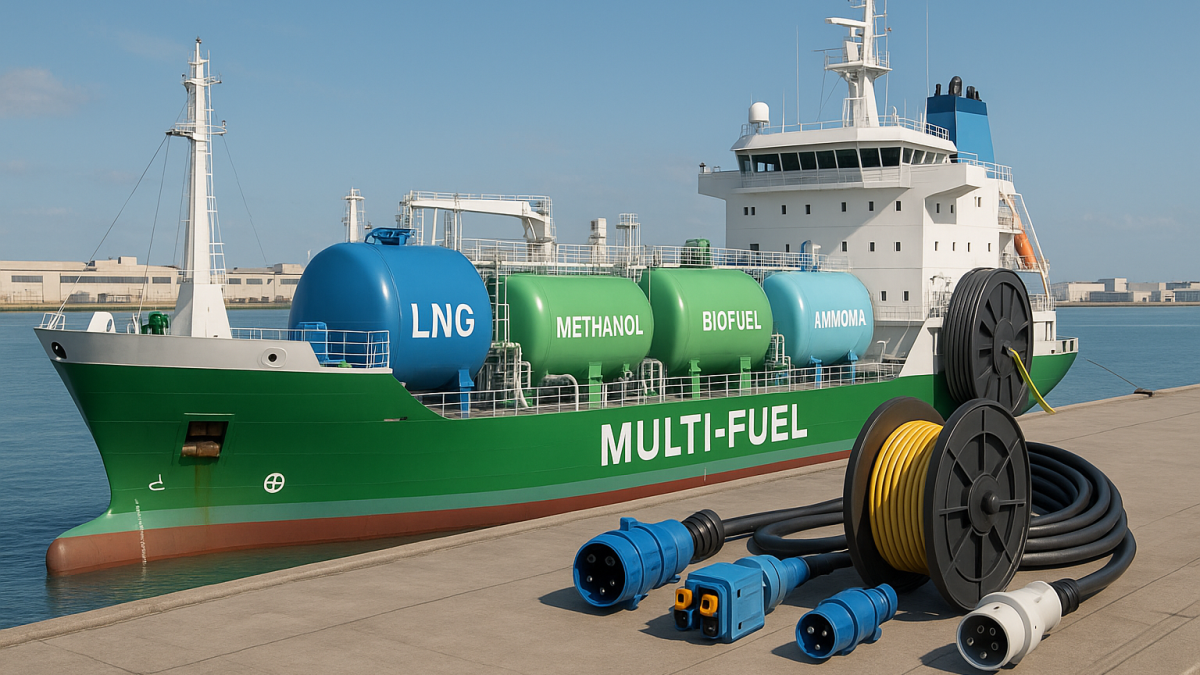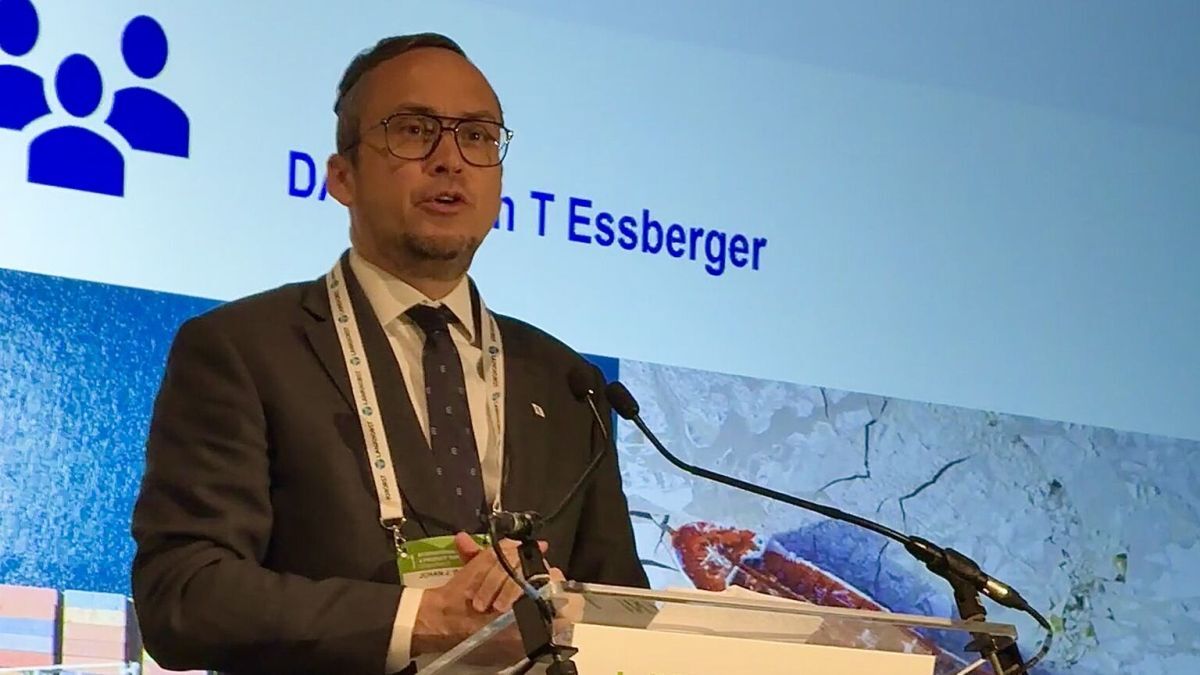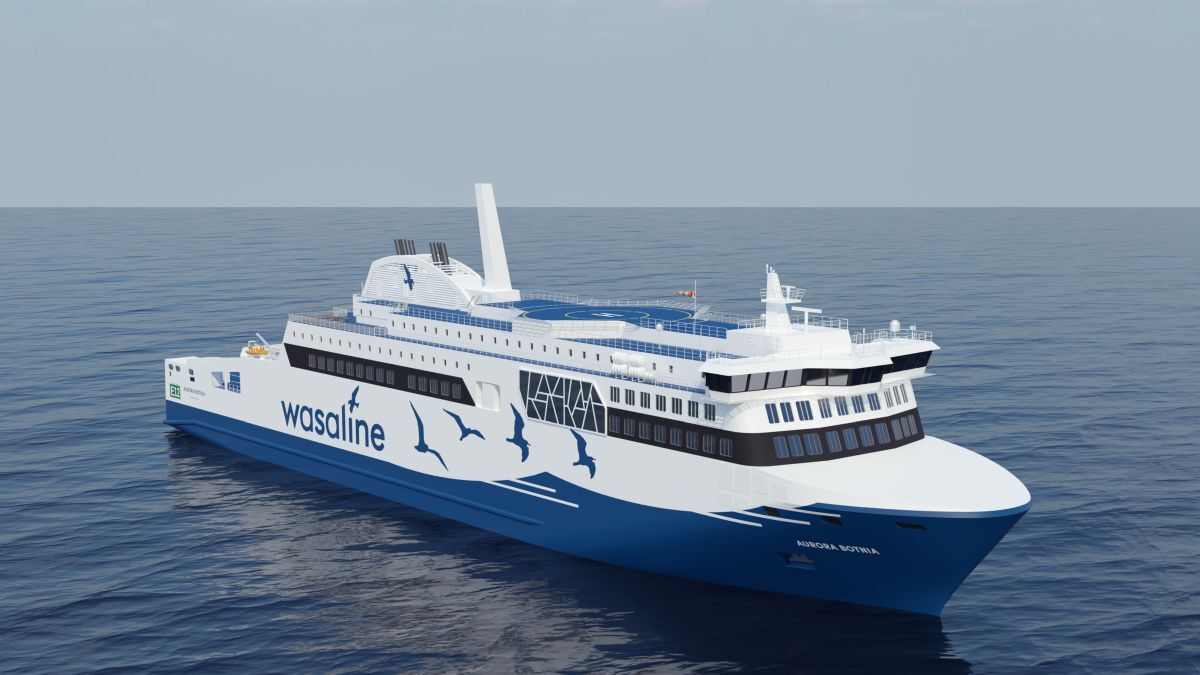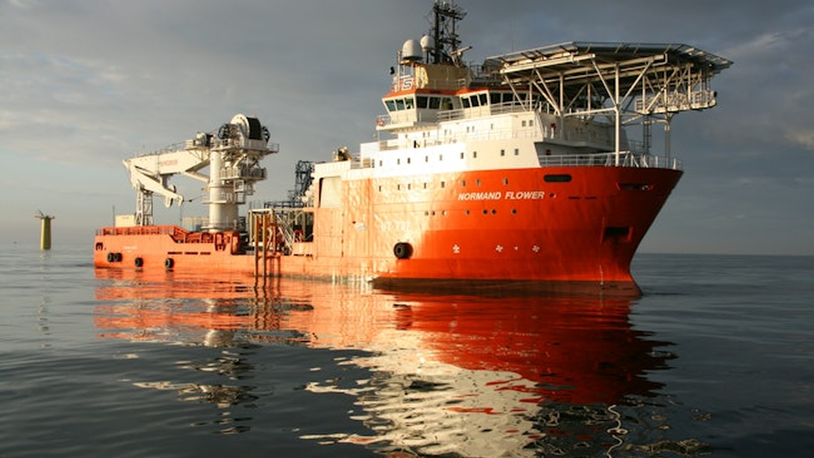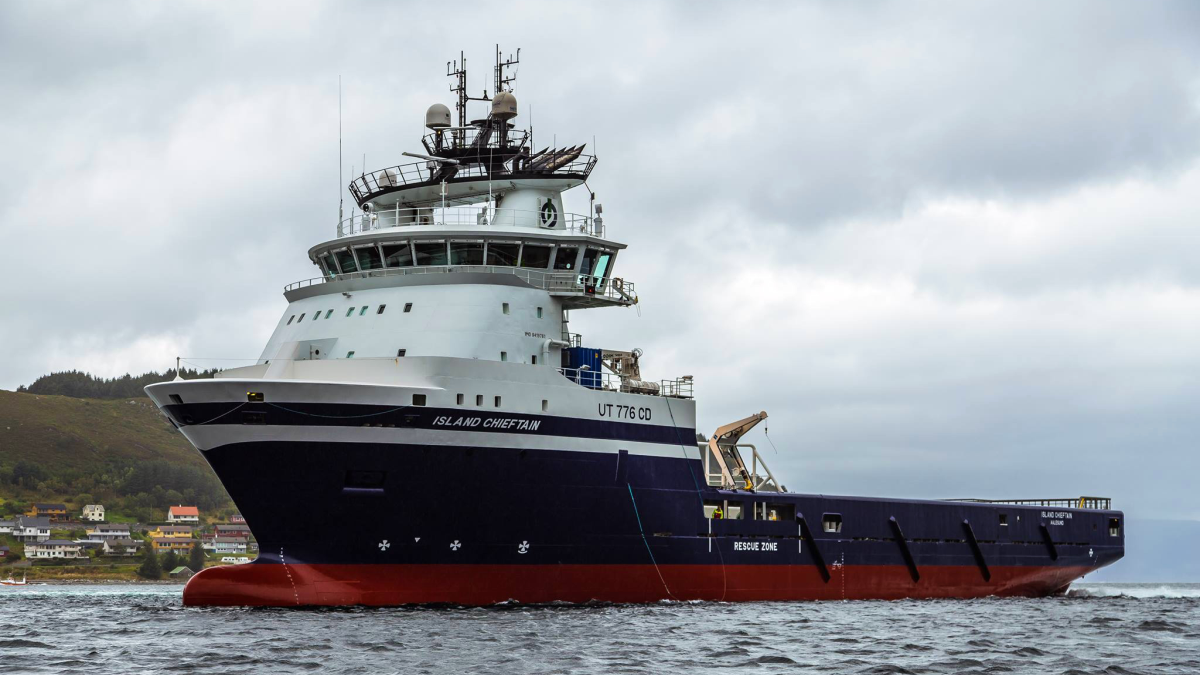Business Sectors
Events
Contents
Register to read more articles.
Hybrid propulsion: a popular choice for CTVs
Penguin International uses its experience and technological knowledge to construct green vessels
Singapore-based builder and owner Penguin International is constructing crew transfer vessels (CTVs) with green propulsion technology to reduce fuel consumption and emissions in offshore hydrocarbon and renewable energy projects.
Its aluminium high-speed vessels have a top speed of up to 45 knots.
Penguin works with hybrid-electric consultants Razor Blunt, naval architects Incat Crowther UK, Danfoss on the electric propulsion system and charging infrastructure and Singapore-based Gema Engineering on the ship control and management system.
“Hybrid typically works when there is a varied operating profile”
“We have a fleet of around 50 vessels, mostly crew boats for the oil and gas industry, working in West Africa, Malaysia, Singapore and the Middle East along with a fleet of harbour craft in Singapore, both conventional, hybrid and electric,” says Penguin’s general manager for group commercial and fleet, George Philip. “They are Penguin owned, operated and crewed, so we can see things from the operator perspective,” he says.
He says Penguin intends to grow this fleet with newbuilds, many with hybrid propulsion, in the next few years: “Fleet expansion is a big part of our plan. We expect a sizable increase in the fleet in the next two to three years, mostly offshore crew boats.”
Penguin continues to build crew boats and CTVs for stock, from 40-m Flex crewboats to 27-m WindFlexes, along with a healthy mix of vessels that are built to order, including much larger vessels such as two 56-m ropaxes for Abu Dhabi, says Mr Philip.
Demand for its high-speed aluminium vessels is high, and interest in electric and hybrid propulsion is growing, providing the potential to build these vessels at Penguin’s shipyard in Singapore and PT Kim Seah Shipyard in Batam, Indonesia.
More hybrid propulsion vessels are being built by the Singapore company, says Mr Philip.It is also in talks with various operators on all-electric solutions where the operating profile makes sense to do so.
“Hybrid typically works when there is a varied operating profile allowing the batteries to charge at higher speeds while running on electric modes at lower speeds. Without the right operating profile, an optimised hull design may provide better results in terms fuel consumption over a hybrid solution,” he says.
Going fully electric has several challenges, with developments in charging infrastructure, battery storage and chemistry needed. “With the constraints of today’s technology, especially when it comes to all-electric propulsion, we have to look at the operating profile and build vessels customised to suit,” says Mr Philip.
“When building these vessels, we consider the number of passengers, schedules, speed, trip numbers and information on the power capacity required. We then engineer the vessel around the profile to deliver a ship optimised for its planned operations.”
Fuels and digitalisation
There has also been considerable interest in replacing diesel with alternative fuels to reduce emissions and the environmental impact of vessels, but this comes with challenges.
“For alternative fuels, the technology is not mature yet,” says Mr Philip. “Most engines can take biofuels with no need to retrofit. But the key issue is fuel availability.”
Until these fuels are readily available, owners can turn to digitalisation to optimise vessel and fleet operations to reduce their carbon footprint through data-driven changes to the way they operate the vessels, be it electric, hybrid or conventional.
Mr Philip thinks these technologies are more important for electric or hybrid vessels.
“Monitoring energy consumption is critical, especially on electric boats, with real-time feedback to the master and shore,” he explains. “It would be ideal to monitor rpm and speed to optimise vessel operations. There can be a big difference between going 18 knots and 21 knots, so we find a balance between reducing energy consumption and maintaining schedules.”
Singapore electric vessels
Penguin is constructing Singapore’s first all-electric seagoing vessel using its experience from operating battery-powered passenger ferries in Singapore for energy major Shell. These transport personnel from mainland Singapore to Bukom Island where Shell owns and operates a refining and petrochemical complex. Penguin not only built and operates these vessels, it also constructed and operates the shore-based infrastructure for charging them.
As Singapore’s Maritime & Port Authority is actively seeking consortia to build electric-powered harbour craft, it will need experienced builders, designers, owners and operators of charging stations. Penguin can manage most of this inhouse or through partnerships with technology experts and is in talks with various operators on all-electric solutions.
Hydrogen fuel-cell CTV gains approval
UK-based Green Marine plans to retrofit a crew transfer vessel (CTV) with hydrogen fuel cells and batteries to cut emissions; it has been granted approval in principle by RINA.
Phase 1 of Project Verdant, involving a preliminary design and feasibility study, has now been completed and deemed viable, opening the door to subsequent project phases seeking to execute design, engineering and sea trials.
This Innovate UK-funded project includes maritime consultancy Waves Group and European Marine Energy Centre. Project Verdant’s conceptual design incorporates hydrogen fuel cells connected to electric motors, working in conjunction with diesel-fuelled engines, which can be shut down to enable zero-emissions operation at slow speed while servicing offshore windfarms.
Hydrogen systems and marine fuel-cell generator company Energys helped design and provide engineering and modelling and Engineered Marine Systems supplied a design for the battery room. Findings show the hybrid system could reduce the vessel’s CO2 emissions by up to 30% and NOx emissions by up to 40%.
Riviera’s Offshore Support Journal Conference, Middle East will return to Dubai, UAE, 11-12 December 2024, bringing together the industry’s leading vessel owners, oil and gas companies, EPC contractors, technology and service providers to discuss opportunities, challenges and strategies to succeed in a booming offshore market. Get your tickets on early bird rates here. Offer ends 31 October 2024
Related to this Story
Events
Maritime Environmental Protection Webinar Week
Cyber & Vessel Security Webinar Week
The illusion of safety: what we're getting wrong about crews, tech, and fatigue
Responsible Ship Recycling Forum 2025
© 2024 Riviera Maritime Media Ltd.

